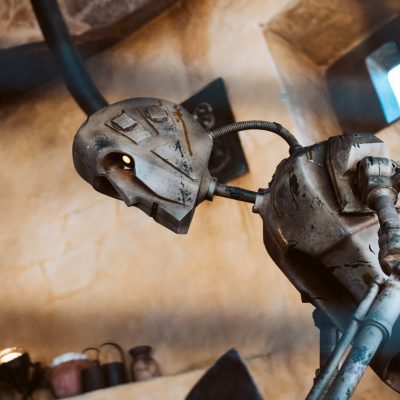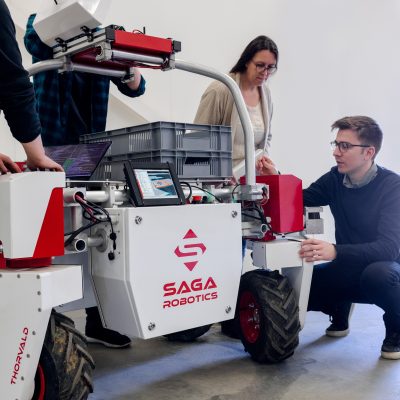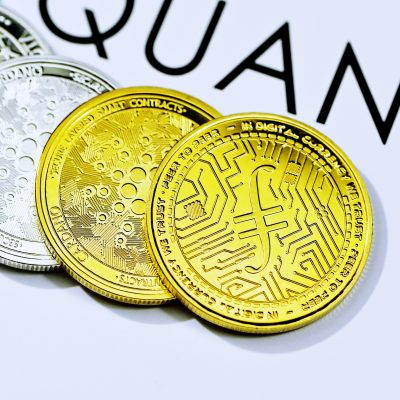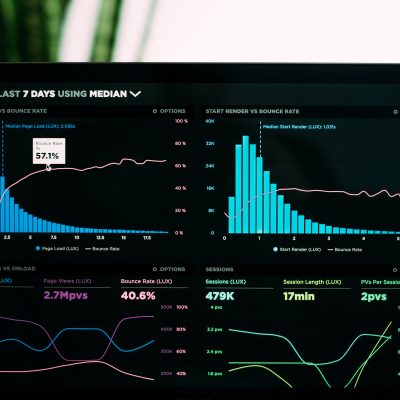Welcome to the fascinating world of artificial intelligence! Imagine a future where machines possess human-like abilities, making decisions and solving complex problems with ease. This is no longer just a figment of science fiction; it’s becoming our reality. Artificial intelligence, or AI, has come a long way since its inception and is rapidly transforming industries across the globe.
In this blog post, we will delve into the history of AI, explore its current capabilities, and uncover what lies ahead for this groundbreaking technology. Get ready to be amazed as we take you on an exciting journey through time and space to discover the incredible trends and predictions that await us in the realm of artificial intelligence. So fasten your seatbelts and let’s dive in!
What is artificial intelligence?
Artificial intelligence, often abbreviated as AI, refers to the development of computer systems that possess the ability to perform tasks without direct human intervention. These systems are designed to simulate intelligent behavior and mimic cognitive functions such as learning, problem-solving, and decision-making.
At its core, AI aims to replicate human intelligence by analyzing vast amounts of data and using algorithms to identify patterns and make predictions. This technology has evolved significantly over time, with advancements in machine learning and deep learning algorithms enabling computers to process information more efficiently than ever before.
AI can be categorized into two main types: narrow or weak AI, which is designed for specific tasks like voice recognition or recommendation systems; and general or strong AI, which aims to exhibit human-level intelligence across a wide range of domains.
The potential applications of artificial intelligence are virtually limitless. From healthcare diagnostics and autonomous vehicles to virtual assistants like Siri or Alexa, AI is already making waves in various industries. As technology continues to advance at an exponential rate, we can only imagine how much further artificial intelligence will take us in the future.
In our next section, let’s dive into the intriguing history of artificial intelligence – a journey filled with groundbreaking discoveries and significant milestones that have shaped this revolutionary field. Stay tuned!
The history of artificial intelligence
The history of artificial intelligence is a fascinating journey that dates back to ancient times. The concept of creating intelligent machines can be traced back to Greek mythology, where stories of mechanical beings like Talos and Pandora’s box captured the imagination.
Fast forward to the 20th century, and we see significant advancements in AI research. In the 1950s, scientists began exploring machine learning and neural networks. This led to the development of early AI programs capable of playing games like checkers and chess.
However, progress was slow initially due to limited computing power and data availability. It wasn’t until the late 1990s that AI started gaining momentum with breakthroughs in natural language processing and computer vision.
Today, we stand at an exciting juncture where AI is becoming increasingly integrated into our daily lives. From virtual assistants like Siri or Alexa to self-driving cars, the possibilities seem endless. And with more powerful hardware and vast amounts of data being generated every second, we can expect even greater strides in AI technology in the future.
While artificial intelligence has a long history spanning centuries, it is only recently that we have witnessed its true potential unfold before our eyes. As researchers continue pushing boundaries and refining algorithms, there’s no telling what amazing breakthroughs lie ahead for this rapidly evolving field.
The future of artificial intelligence
Artificial Intelligence (AI) has come a long way since its inception. From simple calculators to complex algorithms, AI has transformed the world we live in. But what does the future hold for this ever-evolving technology?
One thing is certain: AI will continue to shape our lives in ways we can’t even imagine. With advancements in machine learning and deep neural networks, AI will become more intelligent and intuitive than ever before.
In the near future, we can expect to see AI integrated into every aspect of our lives – from self-driving cars that navigate through traffic seamlessly to smart homes that anticipate our needs and adjust accordingly.
Healthcare will also be revolutionized by AI. Imagine a world where machines can diagnose diseases with incredible accuracy, enabling early detection and effective treatment plans.
Education will also undergo a transformation thanks to AI. Personalized learning experiences tailored to individual students’ needs will become the norm, ensuring every student reaches their full potential.
But it’s not just about convenience or efficiency; ethical considerations are crucial as well. As robots become more autonomous, questions arise regarding their impact on employment and privacy rights.
Despite these concerns, one thing remains clear: The future of artificial intelligence holds immense potential for positive change across various industries. Whether it’s improving healthcare outcomes or enhancing educational opportunities, AI offers endless possibilities.
As researchers continue to push boundaries and innovate within the field of artificial intelligence, there’s no doubt that we’re on the cusp of an exciting era filled with technological breakthroughs and societal transformations. So buckle up because the future is here – powered by artificial intelligence!
How artificial intelligence will change the world
The advancements in artificial intelligence have the potential to revolutionize the world as we know it. From enhancing our day-to-day lives to transforming industries, AI is set to bring about significant changes.
One area where AI will make a profound impact is healthcare. With its ability to analyze vast amounts of data quickly and accurately, AI can help doctors in diagnosing diseases at an early stage and recommending personalized treatment plans. This could lead to improved patient outcomes and even the prevention of certain illnesses.
In the field of transportation, self-driving cars powered by AI are already being tested on roads today. These vehicles have the potential to reduce accidents caused by human error and increase fuel efficiency. In addition, logistics companies can optimize their routes using AI algorithms, leading to more efficient deliveries and reduced carbon emissions.
AI-powered virtual assistants like Siri or Alexa have become increasingly popular in recent years. But this is just scratching the surface of what they can do. In the future, these virtual companions could serve as personal health coaches, financial advisors, or even stand-in therapists when needed.
Education is another sphere that will experience a transformation with AI integration. Intelligent tutoring systems can provide personalized learning experiences tailored to each student’s needs and abilities. This technology has the potential not only for improving educational outcomes but also for making education accessible worldwide.
There’s no doubt that artificial intelligence will continue advancing at an accelerated pace in the coming years. As it does so, it will reshape industries across all sectors and create new opportunities for innovation and growth.
It’s important for society as a whole – individuals, businesses, governments – to embrace these changes while also addressing any ethical concerns associated with AI development. By doing so responsibly, we can harness the full potential of artificial intelligence while ensuring its benefits are realized by everyone.
The future of artificial intelligence holds countless possibilities: from smart cities driven by intelligent infrastructure management systems to robots performing complex surgeries alongside human surgeons; from fully autonomous factories powered by AI-driven automation to advancements in natural language processing that make communication with machines seamless





